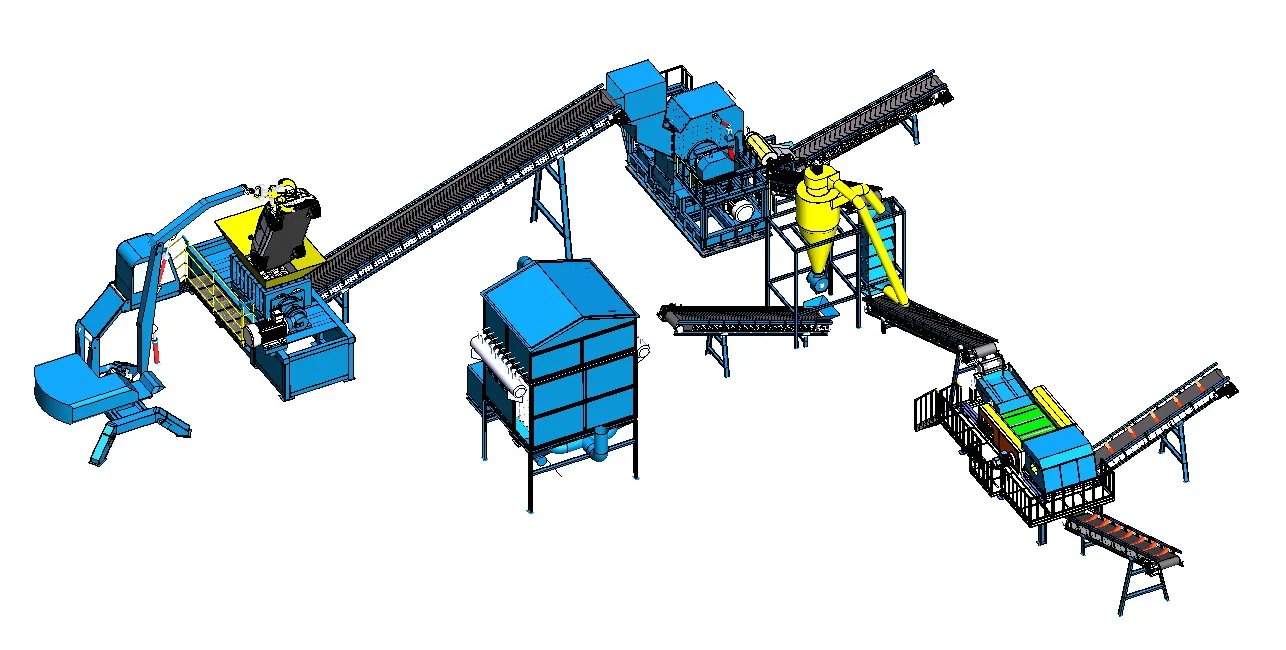
12 月 . 04, 2024 16:12 Back to list
The Importance and Benefits of Metal Recycling Plants
In today’s world, where environmental sustainability is becoming increasingly crucial, metal recycling plants play a vital role in promoting responsible waste management and conserving natural resources. Metal recycling involves the process of recovering scrap or waste metal and transforming it into reusable materials, significantly reducing the need for virgin metal production. This article delves into the significance, processes, and benefits of metal recycling plants, illustrating their impact on the environment and economy.
The Significance of Metal Recycling
The significance of metal recycling arises from the need to mitigate the adverse effects of mining and metal production. Conventional metal extraction processes are energy-intensive and often lead to significant environmental degradation. By recycling metals, we can reduce the demand for raw materials, which in turn lessens the environmental impact associated with mining activities. Moreover, recycling metals drastically lowers greenhouse gas emissions compared to the extraction and processing of new metals, aligning with global efforts to combat climate change.
Processes Involved in Metal Recycling
Metal recycling plants employ a series of processes to ensure that scrap metals are efficiently processed and transformed into usable materials. The recycling process typically includes collection, sorting, and processing.
1. Collection The first step involves the collection of scrap metal. This can happen through various channels, including industrial sources, construction sites, demolition projects, and individual contributions. Convenience and accessibility play a crucial role in encouraging the collection of scrap metals.
2. Sorting Once collected, the scrap metal is sorted based on its type and grade. This is crucial because different metals require different processing methods. Common metals like aluminum, copper, steel, and brass have distinct properties, and thus, sorting enhances the efficiency and effectiveness of the recycling process.
3. Processing After sorting, the metals undergo processing, which includes shredding, melting, and purifying. Shredding reduces the size of the metal, making transportation and processing easier. This is followed by melting the metals in high-temperature furnaces, allowing for the removal of impurities. Finally, the molten metal can be molded into various shapes and forms, ready for reuse in various industries.

Environmental Benefits
The environmental benefits of metal recycling are substantial. For instance, recycling aluminum saves up to 95% of the energy required to produce new aluminum from bauxite ore. Additionally, recycling steel can reduce water usage by up to 40% and decrease air pollution significantly. Metal recycling also helps divert large amounts of waste from landfills, which reduces soil and water contamination.
Moreover, recycling reduces the necessity for mining, helping to preserve biodiversity and reduce habitat destruction. By conserving energy and natural resources, metal recycling plants contribute to a more sustainable future.
Economic Benefits
In addition to environmental advantages, metal recycling plants generate significant economic benefits. The recycling industry creates jobs in areas such as collection, processing, and distribution. Moreover, recycled metals are often more cost-effective than their virgin counterparts, leading to savings for manufacturers and consumers alike.
The global metal recycling market is a multi-billion dollar industry, with businesses relying on recycled metals for production. In promoting the use of recycled materials, metal recycling plants contribute to a circular economy in which materials are continually repurposed, thus supporting sustainable economic growth.
Conclusion
Metal recycling plants are essential components of our efforts to reduce waste and promote sustainability in metal usage. They not only help conserve our planet’s resources and reduce pollution but also create economic opportunities and foster innovation in recycling technologies. As we move forward, it is imperative to support and enhance these facilities, ensuring a cleaner, greener, and more sustainable future for generations to come. By embracing metal recycling, we take a significant step toward a circular economy, where waste is minimized, and resources are reused, ultimately benefiting both the environment and society as a whole.
Latest news
Unveiling the Power of Eddy Current Separator
NewsSep.25,2024
Transform Your Home Recyclin:home metal shredder
NewsSep.25,2024
The Future of Waste Management with Recycling Line Picker
NewsSep.25,2024
The Benefits of a Metal Recycling Plant
NewsSep.25,2024
Revolutionize Material Separation with Onwang Technology
NewsSep.25,2024
Innovative Waste Management: Unveiling the MSW Sorting Plant
NewsSep.25,2024